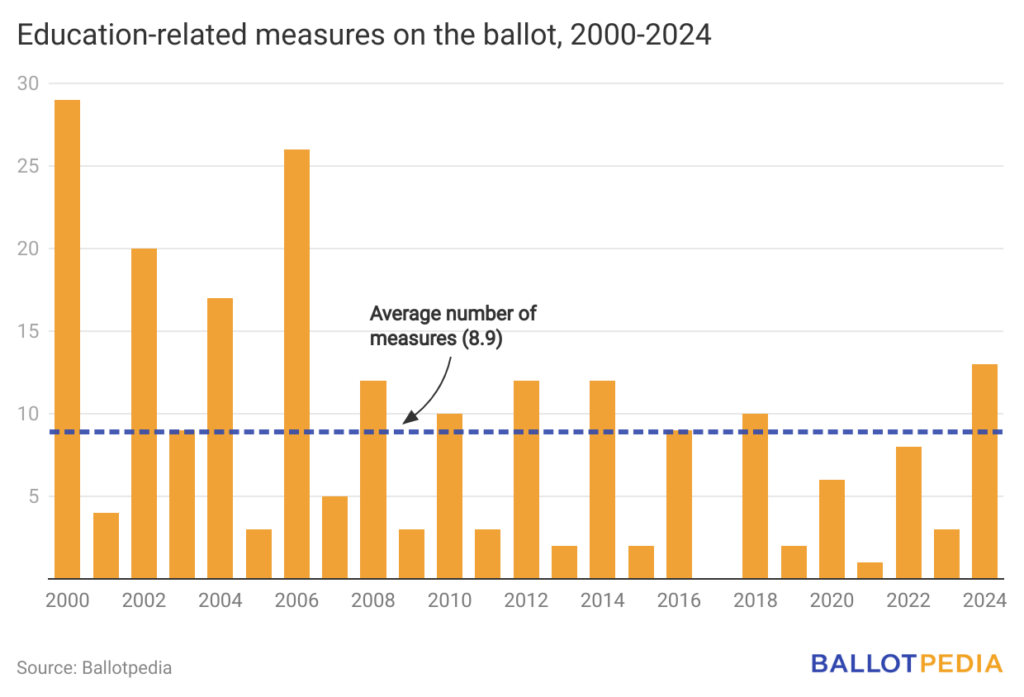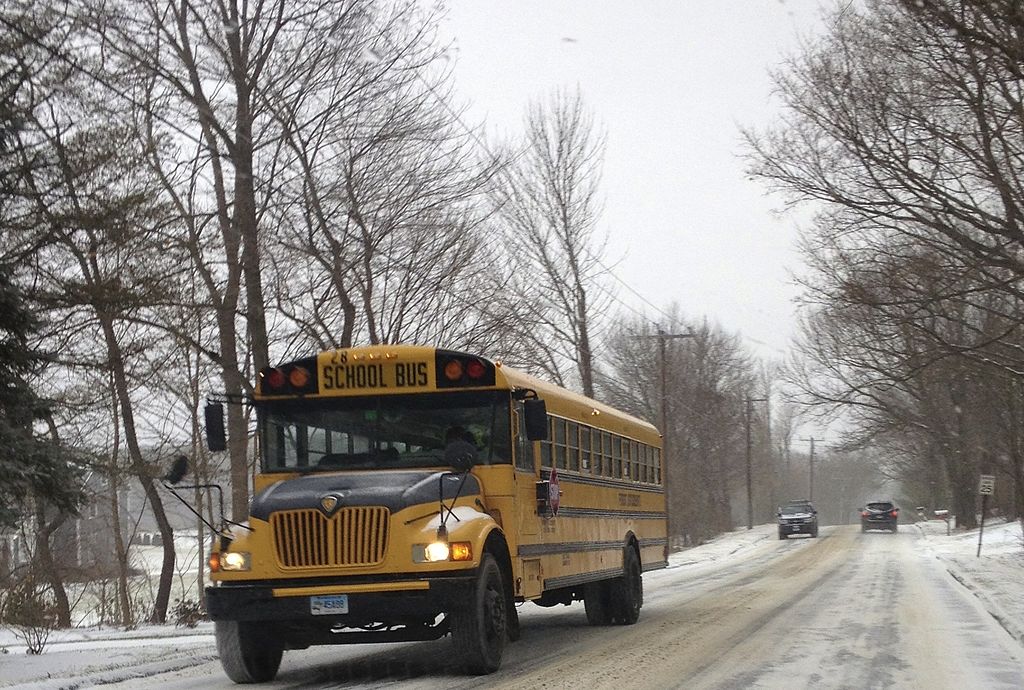Voters decided on 12 education-related ballot measures—the most in 18 years—on Nov. 5. The ballot measures covered various education-related topics, including school choice programs, non-public education, standardized testing, school board elections, and school governance and funding.
Measures were on the ballot in Alabama, Arkansas, California, Colorado, Florida, Kentucky, Massachusetts, Nebraska, Nevada, New Mexico, Rhode Island, and Utah.

School choice on the ballot in 2024
- Colorado Amendment 80 and Kentucky Amendment 2: Supporters of school choice programs, defined as policies that provide families with taxpayer funding for private education or homeschooling, sought to expand these policies through constitutional amendments in two states, Colorado and Kentucky. Colorado Amendment 80, which was rejected with 51.5% of voters opposed, would have provided that “Each K-12 child has the right to school choice.” Kentucky Amendment 2, rejected with 64.8% of voters opposed, would have allowed the General Assembly to “provide financial support for the education of students outside the system of common schools.” The National Education Association donated over $9.7 million to oppose the amendments.
- Nebraska Referendum 435: The veto referendum was successful, repealing legislation that would have allocated $10 million each year for a scholarship program for eligible students to cover the costs of attending accredited private schools. From 2000 to 2023, there were three veto referendums against school choice policies—Arizona Proposition 305 (2018), Utah Referendum 1 (2007), and Washington Referendum 55 (2004). Voters repealed the legislation in each case.
School funding on the ballot
- Voters in California approved Proposition 2, which authorized the issuance of $10 billion in bonds to fund the construction and modernization of public education facilities.
- New Mexico Question 3 was approved, authorizing the state to issue $230.26 million in bonds to fund capital improvements and acquisitions for public higher education institutions, special public schools, and tribal schools.
- Rhode Island voters approved Question 2 to issue $160.5 million in bonds for higher education facilities improvements.
In Arkansas, voters approved an amendment allowing the state’s lottery proceeds to fund scholarships and grants for vocational-technical schools and technical institutes. In Utah, an amendment was adopted to raise the annual distribution limit from the State School Fund for public education from 4% to 5%.
Other education-related measures on the ballot in 2024
- Massachusetts Question 2: Before Question 2, Massachusetts was one of eight states that required students to pass a standards-based exam to graduate high school. As Question 2 was approved, the testing requirement was eliminated. Massachusetts did not have the most common type of requirement for high school graduation, however—state-based course credit requirements. Voters had not considered a ballot measure related to standardized testing requirements for students since 1996 in Oregon. While Question 2 eliminated the requirement that students pass the standardized test to graduate, Massachusetts could continue the test to gather data and assess performance.
- Florida Amendment 1: Amendment 1 was defeated. The constitutional amendment would have made school board elections partisan beginning in November 2026. Heading into November, Florida was one of 41 states where school board elections must be nonpartisan, meaning candidates run without partisan labels, such as Democrat or Republican. Amendment 1 received 54.9% of the vote but required a 60% vote for approval.


